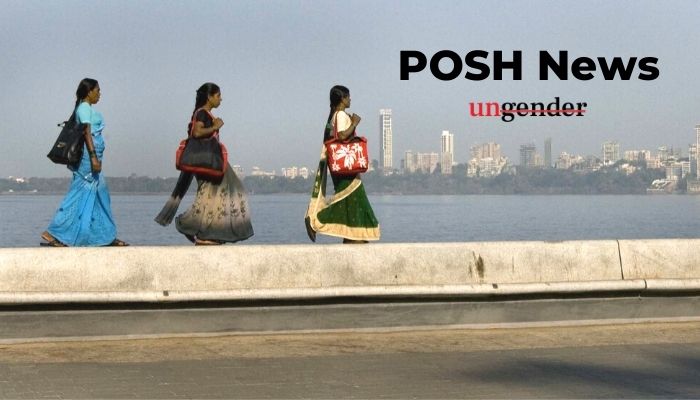POSH News: PIL Asks For Safeguards For ICC Members In Private Organisations

Written by: Rajkanya Mahapatra
Every week we bring you a roundup of news and opinion on the Sexual Harassment of Women at Workplace (Prevention, Prohibition and Redressal) Act, 2013, popularly called the POSH Act, from Indian media, focusing on workplace sexual harassment and its far-reaching effect on equality, equity and mental health of employees of diverse gender identities.
Here are five reported stories on POSH between Dec 20, 2020 and Jan 10, 2021:
1) Using sexist slurs at work might amount to sexual harassment, according to a sessions court in Delhi. This observation was made in the context of a plea filed by the accused against the magisterial court’s decision to charge him for sexual harassment.
The complainant said that the accused, her manager, sat across her desk and hurled sexist slurs at her in January 2016. She first went to the reporting manager who asked her to ignore the incident if she’d like to continue working in the company. She finally lodged a complaint when she was asked to leave because of incompetence.
The sessions court refused to dismiss the charges because the allegations made by the complainant are specific.
Read more about the story, here.
2) To help small businesses recover from the loss they’d incurred due to the Covid-19 lockdown, Karnataka’s labour department has passed an order that allows all commercial establishments to function 24×7 on all seven days of the week for the next three years.
According to the Indian Express report, the labour department has also directed that women employees be allowed to work at commercial establishments between 8 PM and 6 AM only after the employer obtains a written consent.
If women employees are working within those hours, transportation is to be made available to them and the vehicles should be parked at the main entrance of the establishment. Internal committees at these establishments must be also be constituted under the POSH Act, 2013, to address sexual harassment complaints.
Read more about the story, here.
3) Based on their inquiry, the Tamil Nadu State Commission for Women has asked Loyola College in Chennai to pay a former administrative staff a sum of INR 64.30 lakhs with interest and without delay for sexual harassment, compensation for time spent without work (due to wrongful termination) and for filing a false case against the victim.
The victim had filed a writ petition in 2016 where she’d accused former high ranking college official and priest Rev Fr Xavier Alphonse SJ of corruption and sexual harassment. The matter is currently subjudice in the Madras High Court.
Read more about the story, here.
4) Women doctors are being sexually harassed during e-consultations done on platforms like Practo and Dhani. According to a Times of India report, the video consultation websites have done little to stop the harassment.
Patients register with different email IDs and numbers to harass the women doctors. The harassers, in some cases, have also stalked the doctors on social media. As a result of increased harassment, the women doctors have requested to attend to consultations only during the day.
Read more about the story, here.
5) A Mumbai resident has filed a PIL in the Bombay High Court asking for safeguards to be put in place for ICC members in private organisations. The petitioner headed an ICC for over two years at a corporate firm. It’s difficult for ICC members on the payroll to function without the fear of targeting by the senior management.
In the PIL, the petitioner said, “Members of such committee are tasked with the statutory duty of adjudicating sexual harassment complaints while being on the payroll of the company and can be terminated… The members are akin to judges and have not been provided with any safeguards which will enable them to act without fear and favour. The members have been conferred quasi-judicial powers without the requisite independence. This creates a highly unjust and iniquitous situation for ICC members as well the parties to the case.”
Read more about the story, here.
–
Image credit: Steve Evans/Flickr
Ungender Insights is the product of our learning from advisory work at Ungender. Our team specializes in advising workplaces on workplace diversity and inclusion. Write to us at contact@ungender.in to understand how we can partner with your organization to build a more inclusive workplace.
Read our insights about diversity, legal updates and industry knowledge on workplace inclusion at Ungender Insights. Visit our Blog.
Sign up to stay up-to-date with our free e-mail newsletter.
The above insights are a product of our learning from our advisory work at Ungender. Our Team specialises in advising workplaces on gender centric laws.
or email us at contact@ungender.in




